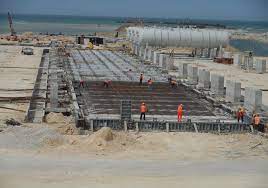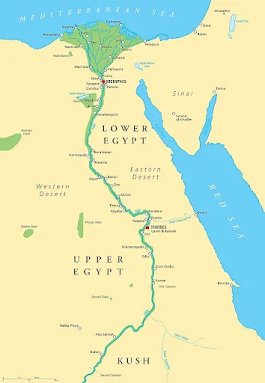Blog 6 - Tunisia: the opportunities of water desalination and renewable energy.
The Arab region has enormous resources and potential for optimizing renewable energy, whether it is solar thermal, photovoltaics solar panel or wind power. While some natural resources are abundant, potable water is becoming increasingly scarce and shortage may occur as discussed in Blog 1. Scholars such as Al-Karaghouli (2008) have studied whether this abundance of certain renewable energy could be an opportunity of Arab countries to palliate their water scarcity. One opportunity he focuses on is to achieve water desalination through solar thermal energy.
Desalination water treatment is process of separation of salts from saline water to produce potable water (with a low enough level of dissolved solids). Two types of desalination exist. Some desalination water treatment process uses evaporation to distillate or change the state of the water through man- made changes. This process includes techniques such as multi-stage flash distillation or the vapor-compression distillation and accounts for over 50% of the of the desalination units worldwide. Other processes rely on a membrane for filtration accounting for 44% of the units worldwide. The process of desalination water is implemented on seawater mainly but also ground water or river water. Increasing water scarcity has encouraged the development of desalination water treatment units and the reduction of its costs progressively (Al-Karaghouli 2008). In the Arab world, desalination have been used as one of the main sources of municipal water supply, using especially brackish water but they remain important and expensive project to put in place because of the quantity and cost of energy use these units require. Al-Karaghouli (2008) quantitative research is comparing the cost of different source of energy powering desalination treatment units. He argues that while there is no best or optimal desalination technique, solar powered units could be an effective and comparatively low-cost technique to investigate. Solar powered technologies for desalination units may indeed be efficient because they require low technical capacities as these have been widely developed, they are very implementable to the climate of the region, and they provide a competitive economic alternative when other renewable or conventional energies are too many investments (Al-Karaghouli’s 2008; Montano 2021).
 |
| Desalination Plant in Kerkenah |
Located in the Mediterranean basin, Tunisia’s sources of clean water are very limited as an important part is brackish or seawater. While rainfall water could be an option for the northern region receiving an annual rainfall volume of 1300 mm/year, the southern region receives less than 100mm/year and water transfer techniques are still limited due to economic and technical capacities. Tunisia also has an abundant resource of solar energy given the arid climate. This distribution of resource quickly fostered adapted research in the country to respond the growing water needs of the population. Currently, desalination plants powered with renewable energy worldwide represent only 0.2% of desalination plants. Research on these techniques remains premature but has been increasingly growing. Since the 1980s, the National Institute for Scientific Research and Technology (INRST) has been carrying research for developing water desalination units in Tunisia using solar energy and brackish water. The INRST implement a first Reverse Osmosis desalination unit was first built in the Kerkenah Island in 1983 to accommodate the need for water supply during tourism season and was able to produce 4000 m3/d of potable water from brackish water (Ben Jemaa 1998).
Tunisia is now a famous case study for desalination project in the Mediterranean Sea with conventional energy. It is a country which has been and is still struggling to find the financial stability to conduct such project while being in one of the most critical situations (Montano 2021). While the research and development part remain less costly by using conventional energy and this method had been prioritized the last 30 years, Tunisia is increasingly taking advantage of its renewable energies (Ben Jemaa 1998).



Comments
Post a Comment